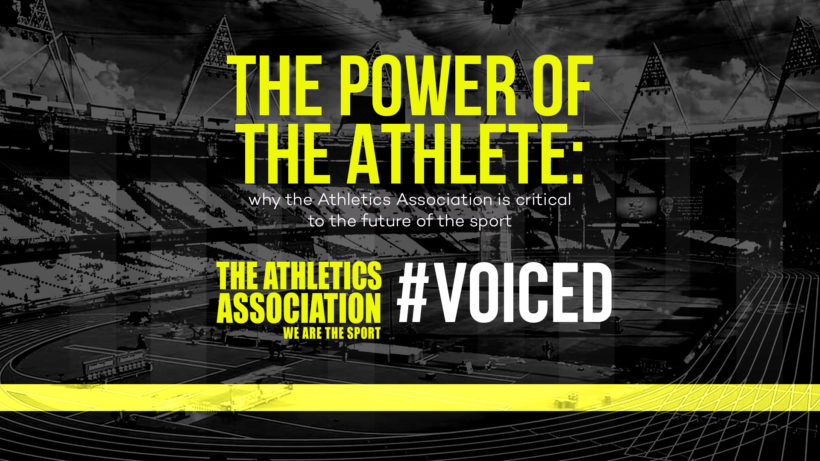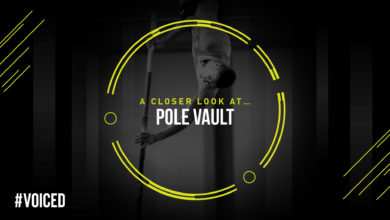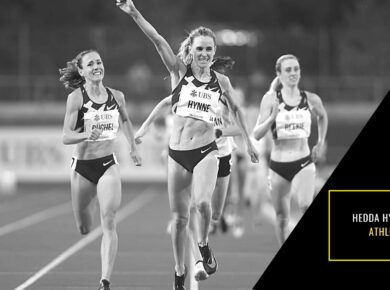Sport is a theatre of dreams. Sport is joy, disappointment, excitement, entertainment and drama all wrapped up in one. Sport is a part of who we are as people and is embedded in all cultures around the world.
But, if you think about it, we don’t watch sport, we watch athletes.
Who can forget Usain Bolt anchoring the Jamaican 4 x 100m relay in Rio to give him the triple triple. Or Michael Phelps beating Milorad Cavic by 0.01s in the 100m Butterfly to keep his historic 8 Olympic gold medal haul intact in Beijing. Or Naomi Osaka defeating tennis great Serena Williams at the US Open in 2018 to become the first Japanese player ever to win a singles Grand Slam title.
Sport is a multi-billion dollar industry, but when it comes down to it, without the athlete there is no industry. They show case both humanities rich diversity as well as our similarities. They are the brave ones, living out their dreams in the very public eye, vulnerably putting themselves in a position to succeed or lose in front of a global audience – and we all love watching it as it unfolds.
Power of the Collective
Athletes, and their stories, have a power all of their own; and when harnessed, can change the course of history. Take tennis: Billie Jean King and the original 9 changed the tennis world when, as players, they banded together to create the Women’s Tennis Association and tirelessly fought for gender equality in the sport. Nowadays, if there is a female athlete in the list of top earners, you can almost guarantee she is a tennis player. Also, in 1973 the then often pushed aside professionals brought the tennis powers that be to their knees when the top ranked players stood together after the banning of Nickola Pilic, walking out of Wimbledon en masse in protest against his unfair treatment. Those in charge of the sport were forced to recognise the power of the professional; “A no-name-filled draw in the face of a boycott scared the daylights out of them (the Grand Slam hosts). The players didn’t need the Grand Slams or the Davis Cup as much as those events needed them…without the stars and the eyeballs and investments they generated, the Grand Slams were dead” writes Matthew Futterman.
Then there is surfing. It took a handful of renegade surfers from South Africa and Australia back in 1975/76 to change surf culture. Led by Shaun Tomson, Rabbit Bartholomew, Mark Richards, Ian Cairns and Peter Townsend, they ventured into the hallowed surf of Hawaii and shook up the surfing world by creating a professional surfing league, which ultimately legitimized surfing as a career choice and turned it into a multi-billion-dollar industry, and global culture.
Back in 1916 Golf also took a new turn in the US when professional golfers, often treated like second-class citizens by clubs at the time (some pro’s even not allowed into the Country Club’s change rooms), realised they had more power when they worked together. Lead by Tom McNamara and businessman Rodman Wanamaker, the Professional Golfers Association of America (PGA) was formed, giving players more say in events and decisions that affected them, and paving the way for greater revenue opportunities.
Fast forward to 2021 the gains made in tennis, surfing and golf in terms of revenue, global exposure and publicity has been phenomenal. As individual sports, the athletes are ‘independent contractors’ touring the world, entertaining all of us and making an income along the way (often a very handsome income indeed). But, with the growth of these sports, somehow the athletes have seemingly sipped down the hierarchy of importance when it comes to decision making, and what united them initially – their collective voice and bargaining power – has been diminished.
Although many federations and associations have player representatives, there is a growing need to re-group and have the voice of, and interests of the athletes, re-established. There are calls in golf for the need of a players union, surfing is trying to create a professional surfing association, and in tennis Novak Djokovic recently left the ATP Players Council to form the Professional Tennis Players Association, and while Roger Federer and Rafael Nadal decline to join, Djokovic was undaunted saying “This has been an idea for 20 years….There is a problem, because there is a monopoly and a system that government for decades. When people are in ruling positions then it is not in their interest to change. I did not participate in founding the organization to oppose anyone. The goal is to represent the rights of tennis players.”
As DeMaurice Smith, the Executive Director of the US National Football League Players Association said in his address to the new formed UNI World Athletes – a global athletes association:
Our athletes…deserve to be more than just by-products of a commercial enterprise. We need to be the moral voice in the wilderness – the voice that reclaims what was once ours. We need to take back the beauty and the humanity of sport. There can be no beauty in sport when greed is the biggest winner.
Track & Field
“Never doubt that a small group of committed people can change the world; indeed it is the only thing that ever has.” – Margaret Mead
Track & Field is a niche community, but on the Olympic stage it is one of the biggest hitters. The Games start and end in the athletics stadium. The Olympic flame – a reminder of Olympic history, linking us to ancient times – burns throughout the Games in the stadium. And the men’s marathon, the last medal to be won at a Games, traditionally finishes in the stadium. It is the centrepiece of the world’s greatest sporting event.
Added to that, one of the sport’s biggest stars, 400m hurdler Edwin Moses, was instrumental in fundamentally changing the Olympic Games for all athletes. He led the call to overturn the amateur status of Olympic athletes, and in 1981 finally succeeded in allowing professional athletes to compete, paving the way for the Olympics to be turned into an elite competition between the best of the best. Moses was unafraid to use his status to speak out about what he saw as the hypocrisy of international athletics, where athletes served as ‘free labour’ entertaining the world but being exploited in the process. He made sure the professionals had a voice.
Yet, as we see with other sports, the more things change the more they stay the same. In 2019 World Athletics, without consultation, announced the intention to drop a number of events from the Wanda Diamond League programme and overnight some athletes lost vital opportunities to compete and earn an income.
It seems the athletics world needs to be reminded of the professionals’ power and voices once again.
It often takes a small group of passionate people to make big change, and The Athletics Association led by triple jump Olympic champion Christian Taylor with a board made up of some of the greatest athletes in the sport is such a group. Their tag line ‘We are the sport’ speaks to the central role the athlete plays – but one that needs to be fought for.
The AA’s desire is to move athletics forward in a way that creates a better and brighter future for everyone involved. “It’s time that Track and Field athletes are represented by a group that magnifies their voices and puts athletes first. This is the number one Olympic sport for a reason, as athletes we want to help create positive change in the sport that we all love” says Taylor.
Not only are the AA there to promote the interests of the athletes, but the association is also a critical vehicle to tell athlete stories, bringing a committed fan base new, interesting content they deserve. A new partnership with #voiced (an online, independent platform for all athletic stakeholders to talk about the sport) is the latest move by the AA to position themselves at the forefront of change and innovation.
Clarity and unity of purpose is what is needed in these troubled times, and it feels like athletics is on the cusp of a pivotal moment in history. As those that have gone before, the AA stands on the shoulders of giants as it too looks towards a different future. Is this a moment in time that others will be writing about in years to come? Is this the movement that will take the sport into a new era? Only time will tell – but if anyone can, this group of dedicated athletes are the ones to do it.


